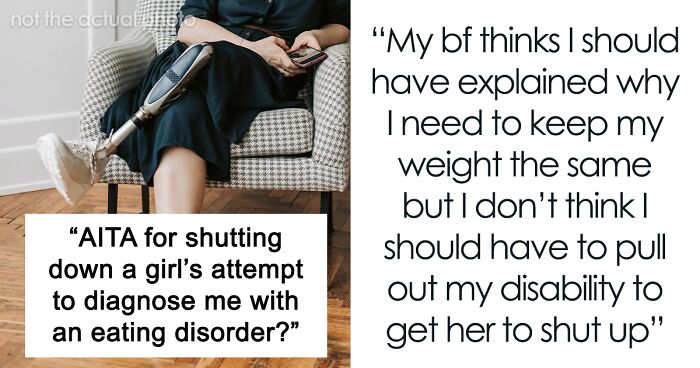
Woman Leaves Dinner Embarrassed After Pushing An ED Diagnosis On A Woman Who Was Not Having It
It sometimes feels like diet culture has permeated every aspect of our lives. We’re supposed to dress in ways that make us look thinner and work out twice as hard after indulging in a slice of birthday cake. If there’s a lower calorie option, it’s the right choice, regardless of how bland and unsatisfying it is!
But just because diet culture exists doesn’t mean everyone who wants to lose some weight is guilty of perpetuating toxic ideas. Below, you’ll find a story that one woman recently shared on Reddit, detailing how she had to shut down a friend’s girlfriend for making assumptions about her mental health, as well as a conversation with Registered Dietitian Kinga Balogh of JM Nutrition.
This woman prefers to stay within a certain weight range to make walking on her prosthetic leg as comfortable as possible
Image credits: MART PRODUCTION (not the actual image)
But when she mentioned she wanted to lose a few pounds, a friend’s girlfriend decided she deserved a diagnosis
Image credits: Gary Barnes (not the actual image)
Image credits: [deleted]
“According to the National Eating Disorders Association, 35% of dieters become obsessive about their eating habits, and up to 20-25% of dieters eventually develop eating disorders”
To learn more about whether or not wanting to lose weight always means an eating disorder is present, we reached out to JM Nutrition’s Registered Dietitian Kinga Balogh, who was kind enough to have a chat with Bored Panda.
“The simple answer is that one can embark on a weight loss journey, however by doing so, one certainly increases their chances of developing disordered eating or a full-blown eating disorder,” Kinga shared. “According to the National Eating Disorders Association, 35% of dieters become obsessive about their eating habits, and up to 20-25% of dieters eventually develop eating disorders.”
As far as what it’s like to be on a diet, Kinga explained that those dieting for weight loss tend to ignore their hunger and fullness cues. “They consume the types and amounts of foods a diet plan prescribes, thereby limiting reliance on bodily cues around appetite regulation,” the dietitian shared. “They often engage in harsh self-criticism when describing their body and willpower to regulate eating. In the event they are unsuccessful with dieting and experience minimal weight loss or weight regain, they tend to blame themselves. This eventually turns into chronic dieting, loss of eating competence and body distrust.”
While there are countless reasons for wanting to achieve weight loss, Kinga told Bored Panda that body dissatisfaction tends to be one of the main reasons. “Cultural influences, such as social media, have a massive influence on our expectations of ourselves. Today’s society propagates a social norm for acceptable and desirable body shapes and sizes,” she explained.
Some people are even bullied and discriminated against due to their weight. “Children in schools are exposed to teasing based on their body size, adults living in larger bodies cannot fit in examination gowns offered by health care providers or need to forego getting to a concert or book a flight due to the size of the seating offered,” the dietitian continued. “Efforts to advocate and call out such social injustices are underway, yet the impact is modest at best. No wonder all of these factors propagate ongoing fat phobia, and many people internalize a tremendous desire to fit the prescribed ideal weight standards.”
“Rigid eating habits and a sensation of food deprivation certainly make for a disharmonious relationship with food and eating in general”
Kinga also pointed out how romanticized weight loss is in today’s culture. “The truth of the matter is that healthy bodies come in different sizes and shapes,” she told Bored Panda. “Even though the literature suggests an increase in health problems with increase in body weight, the evidence is not conclusive. A study looking at offering routine screening tools for heart disease and diabetes in the US has shown the shortfalls of focusing on weight, namely BMI. Many people in the ‘ideal BMI’ category were missed, namely not offered a test assuming they are healthy, while they had health issues. Also, many individuals targeted for screening inhabiting larger bodies did not demonstrate health concerns assumed they would have. As the English idiom goes, ‘do not judge a book by its cover’ seems to ring true when assessing health based on bodily appearances.”
Kinga also says there are various factors that might prevent a person from reaching the “ideal body type,” regardless of what the media may tell them. “Weight is influenced by many factors, including genetics, stress, socioeconomic status, and environment. As one is not easily persuaded to shrink or enlarge the size of their feet, many people fall victim to the rhetoric that their body, in general, can be shrunk or enhanced in whatever way possible.”
“Weight science however demonstrates that 95% of people starting off on diets regain the weight they have lost within three years, where two-thirds regain more weight than they intentionally lost in the first place,” Kinga shared. “Bleak prospects for those wholeheartedly believing that weight loss only requires determination and willpower.”
In the case of this specific story on Reddit, Kinga acknowledged that the woman wanted to maintain her weight for financial reasons, but she is still placing restrictions on herself. “It is unfortunate that she needs to stay in charge of her body weight for fear of financial costs with a prosthetic adjustment,” the dietitian says. “As a result, she often forgoes foods that she may enjoy in a restaurant setting. Choosing salad and soup, while others enjoy delicious back ribs at the restaurant, implies she is self-imposing dietary restrictions. Also, taking some ‘forbidden food’ from a friend’s plate to complement a light meal suggests feeling somewhat deprived.”
“It sounds like she is normalizing weight gain she would experience with an eventual pregnancy and legitimizes incurring a cost around prosthesis adjustment exclusively for that reason,” Kinga continued. “Truth of the matter is, that one’s body weight is not completely stable or carved in stone to remain unchanged over the years. Changes in health, mobility, hormonal levels, stress, sleep or starting certain medications can be some of the reasons why one cannot expect their body weight to stagnate indefinitely.”
Kinga says the questions to ask to gain further clarity around this specific case are: “Given that there were no financial repercussions to weight gain, would this individual still be concerned about maintaining her body weight? What makes weight gain in pregnancy acceptable above and beyond weight changes outside of pregnancy?”
“Rigid eating habits and a sensation of food deprivation certainly make for a disharmonious relationship with food and eating in general,” the dietitian noted. “Food preoccupation can set in, where decisions around when/what/how much to eat take up excessive mental capacity. The cost of staying true to one’s diet often involves foregoing social events, gatherings, trips and many more situations involving food. Such dynamics certainly can greatly predispose an individual to develop an eating disorder.”
“Being tactful, genuine, and empathetic are prerequisites to having an impactful conversation”
We also asked Kinga why it’s important for friends without qualifications to avoid diagnosing others. She says it’s not unusual for loved ones to catch on to changes in eating habits and call out their observations, but making far-fetched and inappropriate comments is a problem. “Giving unsolicited advice around what would be an ideal body weight for a loved one or stating that an affected individual may be delusional to perceive themselves larger than they appear is inappropriate,” Kinga explained. “Being tactful, genuine, and empathetic are prerequisites to having an impactful conversation.”
Kinga also says well-intended comments can often do more harm than good. “Friends or family members do not cause disordered eating in the affected individual. Inappropriate comments can, however, often prove counterproductive though. In essence, family members should not attempt to diagnose or heal eating disorders. But they can be a vital component in the circle of care, should eating disorder recovery services be sought out.”
If you’re genuinely concerned your loved one may have an eating-disorder, Kinga says caregivers should make note of red flags they notice and facilitate a conversation. “Following a discussion with a loved one about the suspicion of an eating disorder, next steps would be dependent on the severity of the situation and the age of the affected individual,” the dietitian shared. “Important to note that bringing eating disorder concerns to a medical professional or dietitian in the earlier stages of the illness offers many advantages.”
“Firstly, the family can gain confirmation of a diagnosis,” Kinga continued. “Secondly, studies demonstrate that interventions at the onset of disordered eating are more effective at achieving full recovery. This can help reduce the risk of life-threatening complications developed from untreated eating disorders.”
“In the Canadian health system, for example, feeding and eating disorders can only be diagnosed by medical professionals (psychiatrists, physicians, nurse practitioners) or psychologists,” Kinga shared. “These diagnoses are guided by the Diagnostic and Statistical Manual of Mental Disorders (DSM-5), published by the American Psychiatric Association. The manual is revised periodically with input from professionals from Canada and the US.”
The dietitian also says that delivering an eating disorder diagnosis carries a lot of weight. “It takes extensive professional experience, genuine concern for the well-being of affected individuals, tolerance for complexity, need to collaborate with multiple health care professionals and on-going attention to maintaining a patient-provider relationship based on trust,” she explained.
If you’d like to gain more insight on this topic, feel free to visit JM Nutrition and reach out to their team of professionals. And if you’re looking for another Bored Panda article to read, we recommend checking out this one next!
Many readers assured the woman that she was right to stand up for herself
However, some believed she could have handled the situation more delicately
Explore more of these tags
All those people saying she should have shown the woman her prostetic leg to prove a point are wrong. There's nothing to be ashamed about it, obviously, but telling someone of your disability or revealing it should be a choice, if possible. And it's not even really relevant in this case - that woman shouldn't have commented on her eating decisions in the first place nor try to diagnose her with an eating disorder. I don't care she meant well, it's none of her business.
The second one was hilarious, but yeah. It's rude no matter what to remark on people's weight/their eating habits(unless you are very specifically asked)
Load More Replies...I don't understand those YTA judgements. Sure just let someone who knows nothing about the situation and the other person, most likely without any education on the subject, "diagnose" someones perceived medical issues, and this someone should just grin and bear it just because the first one is "friendly" and "concerned"? Eff that, people like that need to be put in their place since most often they do more harm than good. When I wrote this the saying "The road to hell is paved with good intentions" popped up in my head. We need to stop defending (and enabling) people purely on having good intentions, they need to be backed up with good actions.
I was very thin as a teenager and the comments about my weight (with some people even telling me I was anorexiccor calling me a stick or paperthin, even though I desperately tried to gain weight) really hurt. It's a very sensitive and personal topic, which at max should be discussed in a private setting between very good friends/family if someone is honestly concerned. Or by a health professional, of course.
Load More Replies...I have a stomach issue that sometimes means I am very very underweight. The nasty comments I get from strangers is disgusting. More than once I've been shopping and people have threatened to push me (I'm a full time wheelchair user) to McDonald's and "make me eat a full meal for once" or called me disgusting names. So I'm stuck with either giving them my medical info or telling them to go away. I shouldn't have to explain my health to anyone I don't know. I'm not ashamed of it, but it's also no one else's business. They wouldn't do it if I was massively overweight!
Wow, there are a lot of rude, clueless people out there. Coping with that type of intrusion cannot be easy. I'm sorry you have to deal with that.
Load More Replies...All those people saying she should have shown the woman her prostetic leg to prove a point are wrong. There's nothing to be ashamed about it, obviously, but telling someone of your disability or revealing it should be a choice, if possible. And it's not even really relevant in this case - that woman shouldn't have commented on her eating decisions in the first place nor try to diagnose her with an eating disorder. I don't care she meant well, it's none of her business.
The second one was hilarious, but yeah. It's rude no matter what to remark on people's weight/their eating habits(unless you are very specifically asked)
Load More Replies...I don't understand those YTA judgements. Sure just let someone who knows nothing about the situation and the other person, most likely without any education on the subject, "diagnose" someones perceived medical issues, and this someone should just grin and bear it just because the first one is "friendly" and "concerned"? Eff that, people like that need to be put in their place since most often they do more harm than good. When I wrote this the saying "The road to hell is paved with good intentions" popped up in my head. We need to stop defending (and enabling) people purely on having good intentions, they need to be backed up with good actions.
I was very thin as a teenager and the comments about my weight (with some people even telling me I was anorexiccor calling me a stick or paperthin, even though I desperately tried to gain weight) really hurt. It's a very sensitive and personal topic, which at max should be discussed in a private setting between very good friends/family if someone is honestly concerned. Or by a health professional, of course.
Load More Replies...I have a stomach issue that sometimes means I am very very underweight. The nasty comments I get from strangers is disgusting. More than once I've been shopping and people have threatened to push me (I'm a full time wheelchair user) to McDonald's and "make me eat a full meal for once" or called me disgusting names. So I'm stuck with either giving them my medical info or telling them to go away. I shouldn't have to explain my health to anyone I don't know. I'm not ashamed of it, but it's also no one else's business. They wouldn't do it if I was massively overweight!
Wow, there are a lot of rude, clueless people out there. Coping with that type of intrusion cannot be easy. I'm sorry you have to deal with that.
Load More Replies...
 Dark Mode
Dark Mode 

 No fees, cancel anytime
No fees, cancel anytime 


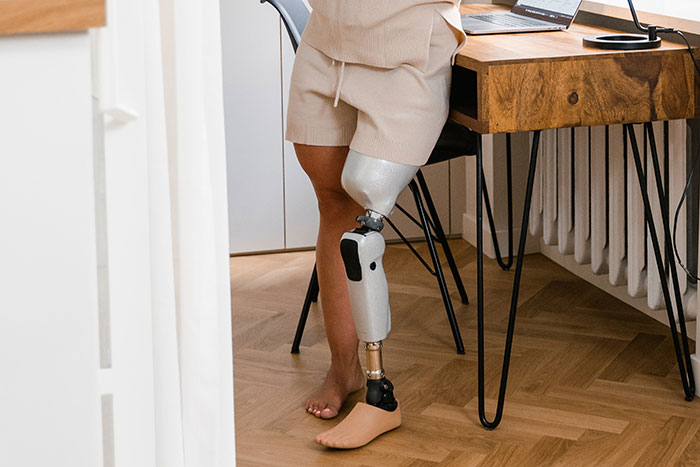
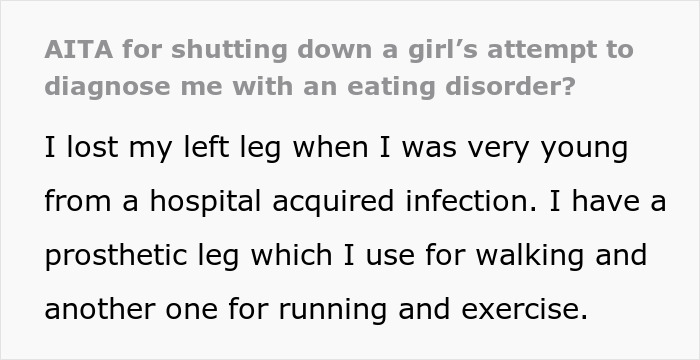
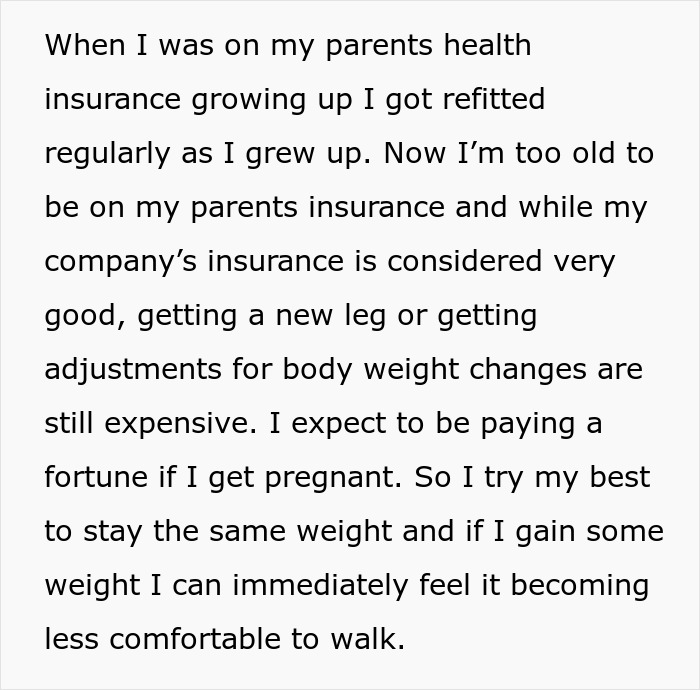
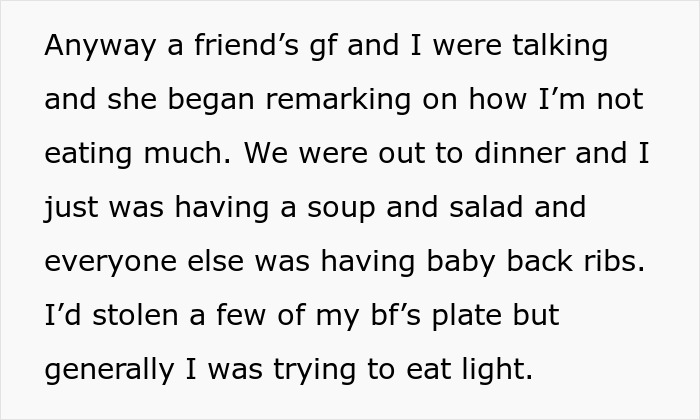
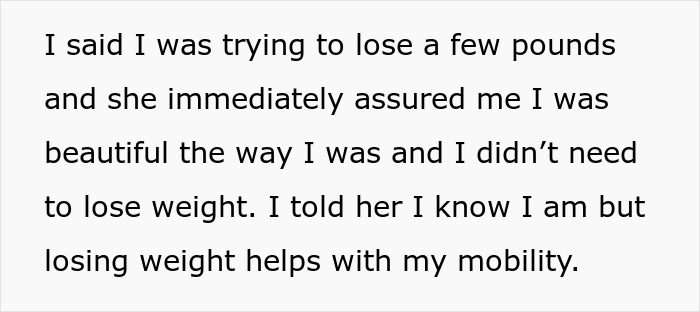

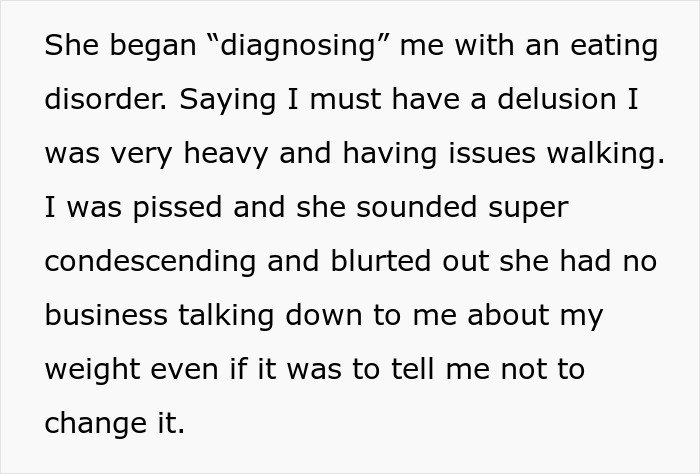
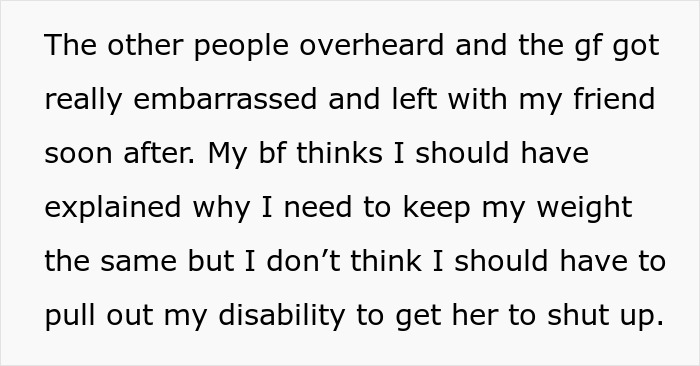
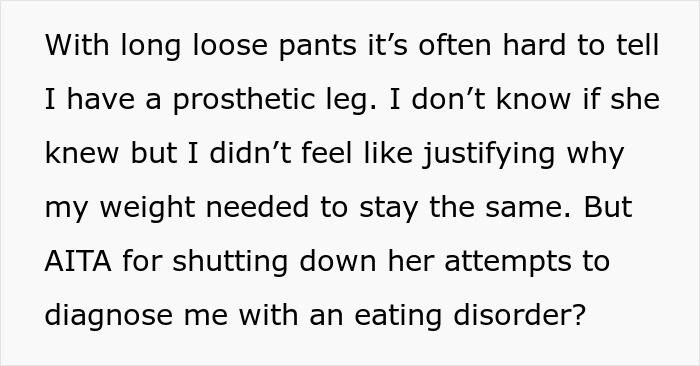
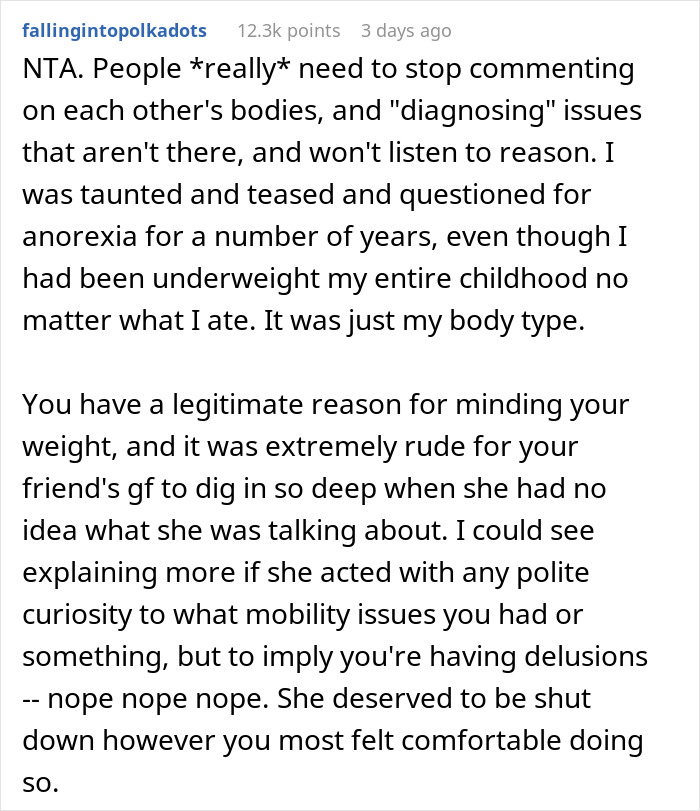

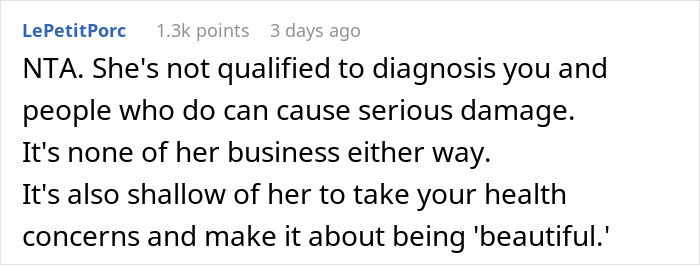
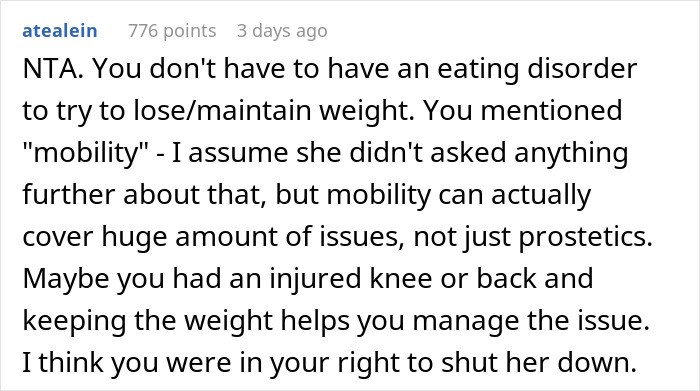


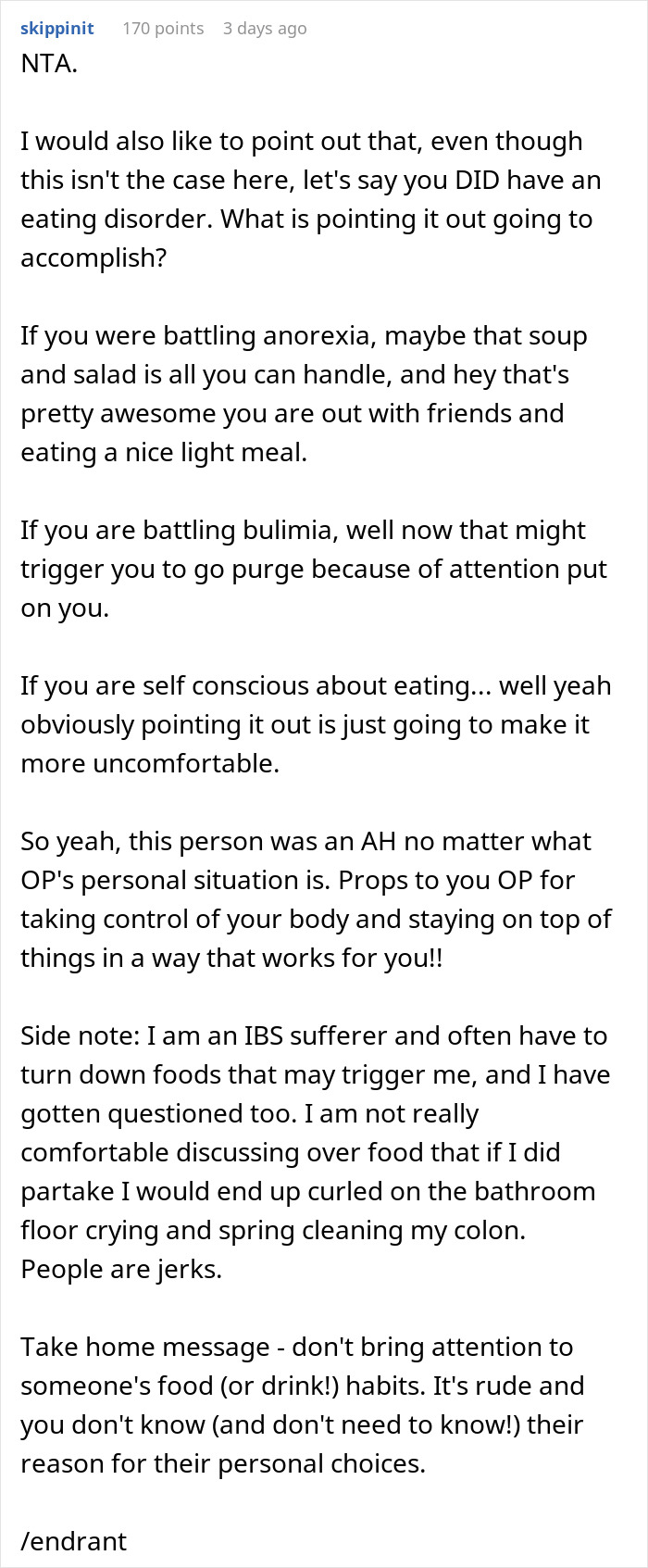



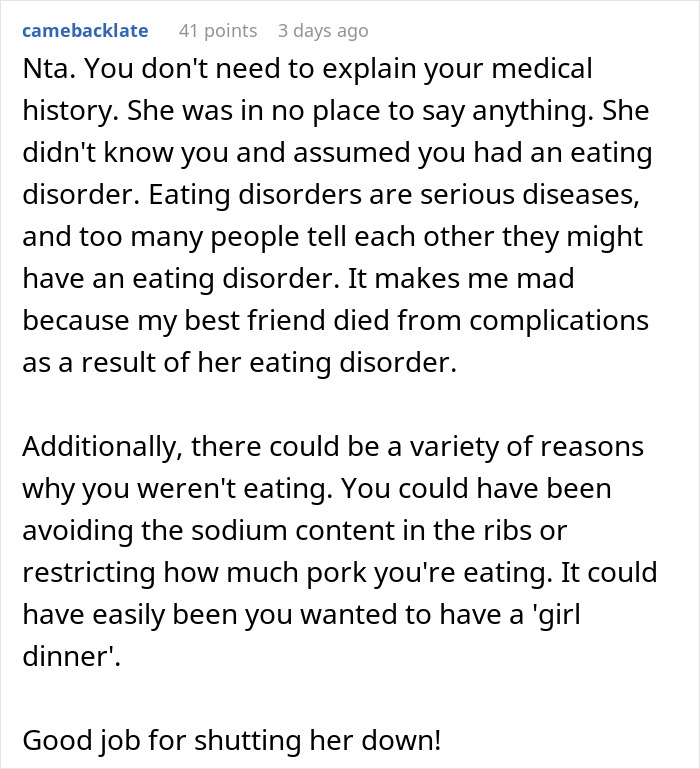
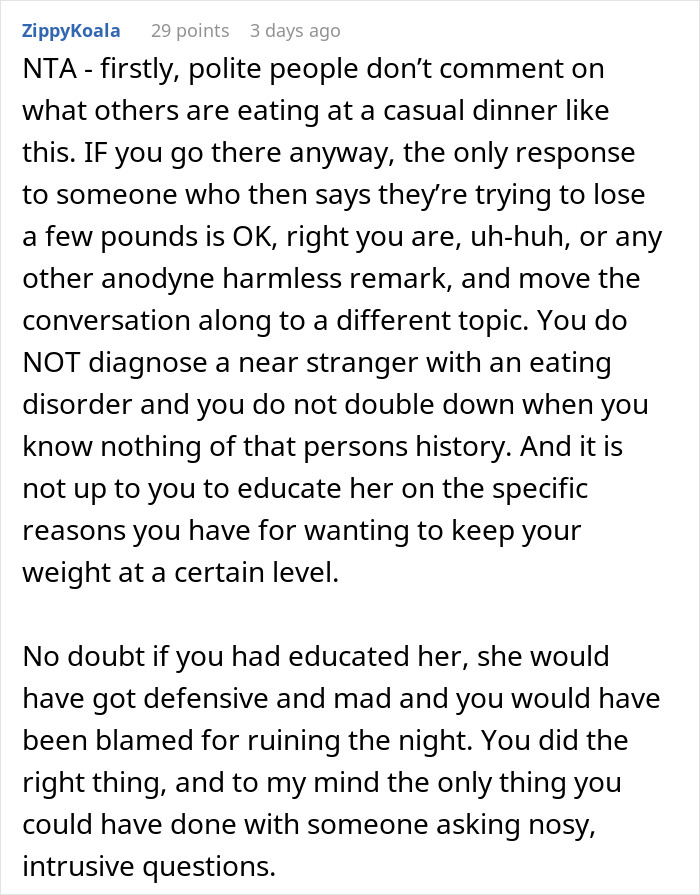
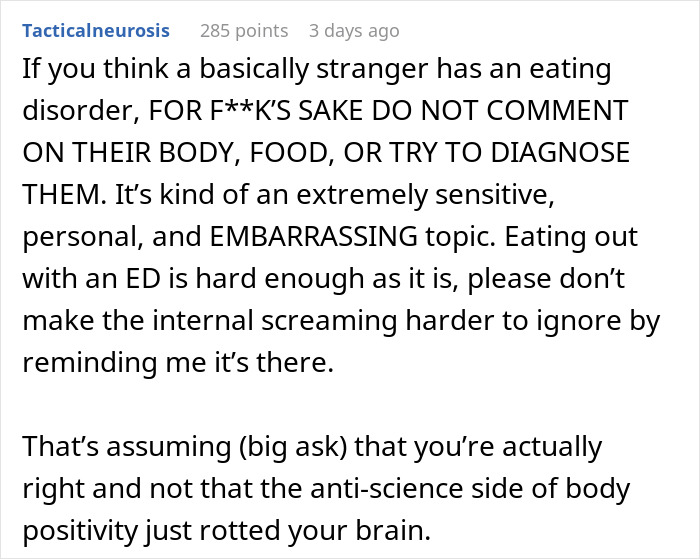
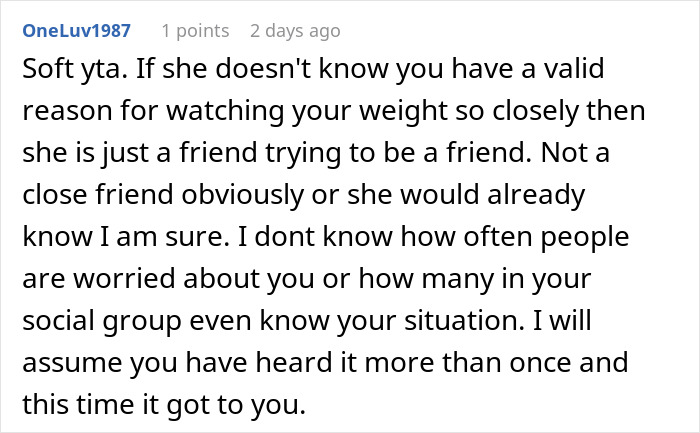
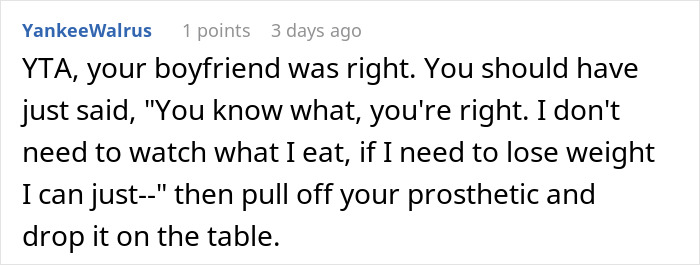
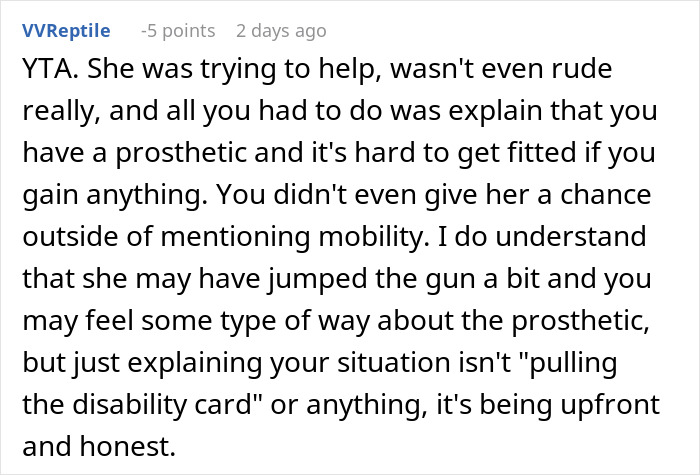













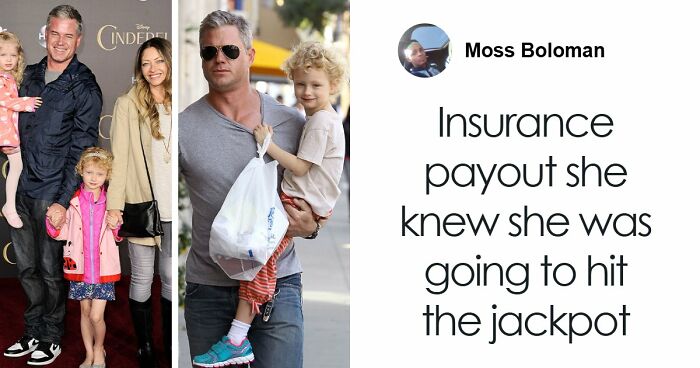






























85
60